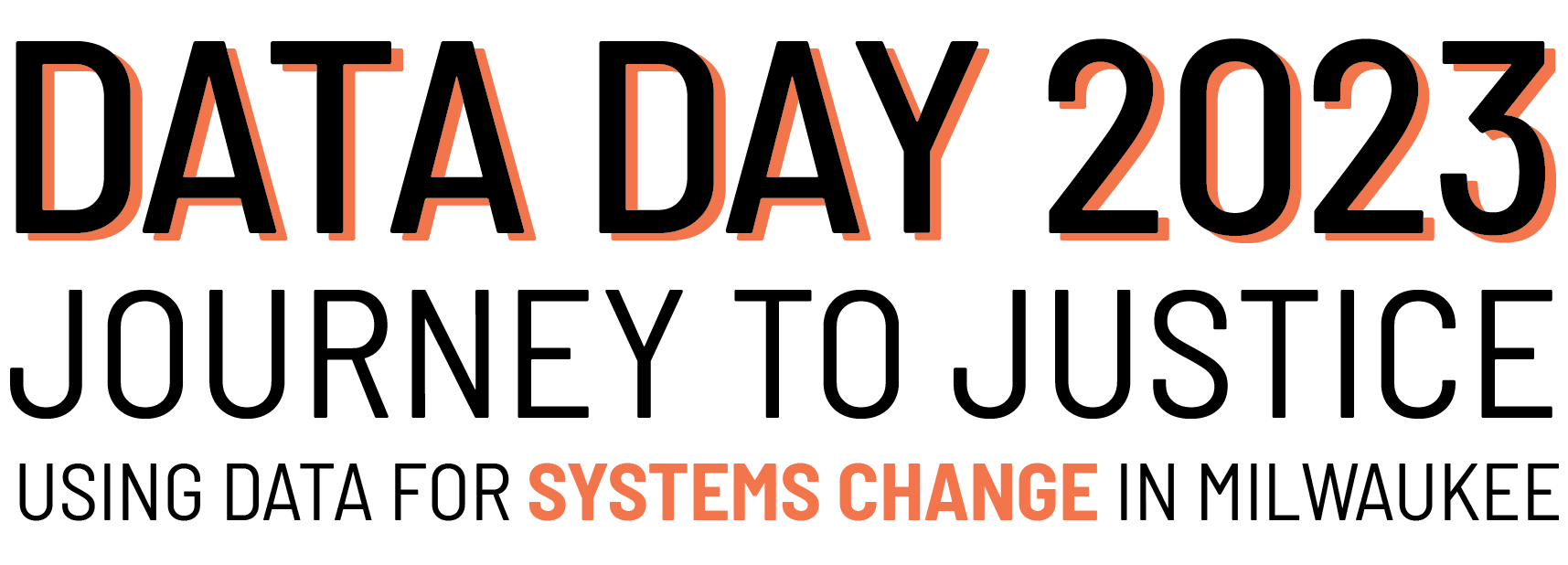
Presentations and discussion
Networking and connecting
Learning and workshops
Countdown to Data Day 2023!
Day(s)
:
Hour(s)
:
Minute(s)
:
Second(s)
Data Day Registration
Registration for Data Day 2023 is now closed. Thank you to everyone who registered, and see you on October 18th!
When: Wednesday, October 18, 2023
Where: Italian Community Center – 631 E Chicago St, Milwaukee, WI
Agenda:
8:30 am – Registration
9:00 am – Welcome – Mayor Cavalier Johnson, City of Milwaukee
9:15 am – Opening Remarks – Dr. Victor Amaya, Executive Director, DYCU
9:45 am – Morning Keynote – Cashauna Hill, Executive Director, Redress Movement
11:00 am – Ignite Presentations
11:30 am – Lunch
12:30 pm – Afternoon Keynote – Dr. Tonya Calhoun, Director of Community Engagement, Environmental Defense Fund
1:45 pm – Ignite Presentations
2:15 pm – Data Journey Sessions
3:30 pm – Reception / Happy Hour
— DATA DREAM FINALISTS —
Milwaukee Community Land Trust
Our data dream is to compare the wealth created for families in three different scenarios: rental / fair market / community land trust. Our hope is to use actual Milwaukee housing historical data to create a ten year comparison. This data will be valuable to potential homebuyers in their decision making whether or not to purchase a home through the community land trust model, as well as to increase public understanding of the model – particularly with potential investors and partners.
Milwaukee Food Council
Our “Data Dream” is to create a social network map of the pre-existing programs, policies, organizations, and businesses within the complex food system of Milwaukee to determine if they are meeting public need. We seek to facilitate dialogue between organizations doing overlapping work to foster an environment of shared resources and collaboration. We recognize the historical and systemic barriers that have inhibited people in all neighborhoods of Milwaukee easily accessing nutritious, affordable food and intend to leverage organizations mitigating this issue by providing resources and communication to organizations.
Sherman Phoenix Foundation
There are significant disparities in entrepreneurship opportunities and venture capital finding that disproportionately affects Black and Latinx communities. It is paramount for the Sherman Phoenix Foundation to employ precise measurement and data collection methods in order to effectively track the impact of our initiatives and validate the critical role it plays in providing essential support to black and brown small businesses when seeking funding and support. Our Data Dream is to be able to identify the indicators to do just that to substantiate our mission but also to facilitate the continuous improvement of our programs.
— KEYNOTE SPEAKERS —
Cashauna Hill – Executive Director, Redress Movement
Cashauna Hill was recently named the national Executive Director of the Redress Movement after serving as Executive Director of the Louisiana Fair Housing Action Center. The Redress Movement is committed to leading a multi-racial movement that empowers communities to take direct action to redress racial segregation. Click here to learn more about Cashauna Hill.
Dr. Tonya Howard Calhoun, PhD – Director, Community Engagement, Environmental Defense Fund
Dr. Tonya Howard Calhoun is the Director of the Environmental Defense Fund’s (EDF) Office of Community Collaboration & Engagement. EDF is a global nonprofit tackling climate change through bold, game-changing solutions which put people at the center. Click here to learn more about Dr. Tonya Calhoun.
Click here for all presenter bios
— IGNITE PRESENTATIONS —
Russell Star-Lack, University of Wisconsin-Milwaukee Economic Development Fellow, Metropolitan Milwaukee Fair Housing Council
Discredited: Mapping Mortgage Lending Disparities in Milwaukee
This project uses publicly available Home Mortgage Disclosure Act (HMDA) data and visualizes it on a public map that anyone in Milwaukee can use to determine where people bought homes with a mortgage in 2022. Access to mortgage loans is one way to show investment in our neighborhoods, as well as access to capital across communities – both of which are not evenly distributed in the City.
John Johnson, Research Fellow, Marquette Law School Lubar Center
Mitchell Henke, Software Architect
Using Public Data to Match Landlord Networks in Milwaukee
This project uses city of Milwaukee parcel ownership records and Wisconsin Department of Financial Institutions business filings to identify networks of connected landlords in the city. The goal is to identify complete portfolios of all landlords in the city and share that data through a website that will allow interested community members to quickly view the owner of any given rental property, as well as the other names and properties connected with that landlord.
Pnina Goldfarb, Ph.D., Children’s Community Mental Health Services & Wraparound Milwaukee
Addressing Literacy: a Path to Long-term Physical and Psychological Health
Wraparound Milwaukee endeavored to rectify the gap between literacy assessment, remediation, and mental health care for children and youth by developing a year-long, research-based performance improvement project in partnership with Readsters, and national and international literacy experts. This presentation will highlight the process and the reading outcomes as a result of integrating literacy assessment and remediation into mental health care.
Carissa Tomas, PhD, Assistant Professor, Medical College of Wisconsin
Injury Burden in Milwaukee During COVID-19
When the COVID-19 pandemic intersected with the longstanding global pandemic of traumatic injury, it exacerbated racial and ethnic disparities in injury burden in Milwaukee. The Medical College of Wisconsin analyzed trauma registry data from the only adult Level 1 trauma center in Milwaukee, WI using baseline data before the COVID-19 pandemic and models to forecast injury during the pandemic through December 2021. Forecasts of injury by race and ethnicity were compared to actual injury counts during the same time period.
Ebony Kirkendoll (she/her), Director of Strategy and Technical Assistance, UBUNTU Research and Evaluation
Ecosystems as a Tool for Dismantling White Supremacy
UBUNTU is constantly interrogating the question, “What would a liberated world look, sound, feel, and smell like?”, through our work. However, with White Supremacy using its greatest tools, invisibility and valuing individualism, it can be hard to even begin to conceptualize the answer to that question. I believe that ecosystem mapping is a tool to help us understand the answers to this question.
Sarwat Sharif, PhD Candidate and Research Assistant for MKE Public Welfare CJ Landscape and Reentry Rising, UW-Milwaukee
Jolynn Woehrer, MSW Student and Research Assistant for MKE Public Welfare CJ Landscape, UW-Milwaukee
Community-Led Data Needs Assessment of Milwaukee's Criminal Legal Landscape
A team of UWM researchers have been working on a data landscape analysis of the criminal legal system in Milwaukee County, as part of a broader national initiative driven by funders seeking to invest in transformative, community-led approaches to justice. They will share their year 1 report findings, which describe a variety of data that are publicly available to better understand the criminal legal landscape here in Milwaukee, and present the next phase of the project to the Data Day audience.
Diana Barany, Senior Data Analyst, Children’s Wisconsin | Health Management
Anastasia Brennan, Senior Project Manager, Children’s Wisconsin | Health Management
Using Data and Partnerships to Tackle the Childhood Lead Poisoning Crisis
Childhood lead poisoning has been an ongoing health crisis in the City of Milwaukee and disproportionately impacts marginalized populations in our community. Children’s Wisconsin recently implemented the Integrated Lead Program, which utilizes data-driven interventions both internally and in partnership with other community organizations and governmental agencies to address the crisis.
— DATA JOURNEY SESSIONS —



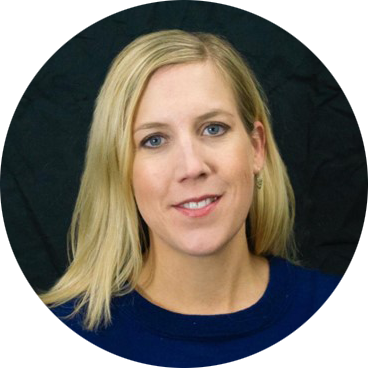
Using Publicly Available Local Data
Beyond Books: Data Tools at Your Local Library
The power of a library card is limitless, including providing free access to accurate and timely local data! Milwaukee Public Library provides access to a wealth of data tools supporting Milwaukee entrepreneurs, micro and small businesses, and nonprofits. This presentation will give participants an overview of relevant library databases and their potential uses for demographic, consumer, and psychographic research. We will highlight tips and tricks for using library tools and how to connect with librarians for continued support.
You can be a mapmaker, too!
This session will provide a demonstration of the Map Milwaukee Property Info web application by showing participants how to create their own maps. This introduction to the data, tools and mapping capabilities available in Map Milwaukee will provide participants with the skills to begin using data and creating maps on their own.
Kristina Gómez, Library Manager, Milwaukee Public Library
Hannah Bubacz, GIS Analyst, City of Milwaukee
Engaging Youth Voices: Black and Latino Male Achievement
In this session, participants will learn a brief history of Black and Latino Male Achievement and how the department’s work is rooted in student voice to drive student outcomes. Participants will also hear from BLMA Ambassador students about their experiences in BLMA, as well as the summer Youth Voice Summit hosted by them.
Nate Deans Jr., Dept. of Black and Latino Male Achievement, Office of Chief of Staff, Milwaukee Public Schools
Mapping Racism & Resistance in Milwaukee County
This presentation examines the geography of racially restrictive covenants and challenges to them between the years 1910 and 1960. This project represents the first effort to comprehensively document and map all racial covenants in Milwaukee County. The goal of this work is to not only analyze and visualize the historical geographies of racial covenants, but also to uncover Black resistance to such discrimination and its impact in shaping racial justice movements today. During this session you will learn about the context and progress of this work, as well as what lies ahead.
Dr. Anne Bonds, Professor & Associate Chair, Department of Geography, University of Wisconsin-Milwaukee

Cashauna Hill – Executive Director, Redress Movement
Cashauna Hill was recently named the national Executive Director of the Redress Movement after serving as Executive Director of the Louisiana Fair Housing Action Center (formerly known as the Greater New Orleans Fair Housing Action Center). The Redress Movement is committed to leading a multi-racial movement that empowers communities to take direct action to redress racial segregation. The Redress Movement works in partnership with local communities to repair the harm caused by intentional policies to segregate communities and does their work by educating, mobilizing, shifting the narrative, and winning redress victories. Richard Rothstein’s book, The Color of Law, which documents the intentional laws and processes that created housing segregation, inspired the creation of The Redress Movement.
At the Louisiana Fair Housing Action Center, Ms. Hill led a team working holistically to end discriminatory housing policies and practices through litigation, policy advocacy, community-based educational offerings, and other direct services to community members. Her work as Executive Director included leading the community engagement process for the City of New Orleans’ 2016 Assessment of Fair Housing plan – the first in the nation submitted under a 2015 rule requiring state and local governments to identify and address barriers to fair housing choice. Ms. Hill has written extensively about housing segregation and civil rights and has testified before the United States Congress as a fair housing expert. She is a graduate of Spelman College and Tulane Law School.

Dr. Tonya Howard Calhoun, PhD – Director, Community Engagement, Environmental Defense Fund
Dr. Tonya Howard Calhoun is the Director of the Environmental Defense Fund’s (EDF) Office of Community Collaboration & Engagement. EDF is a global nonprofit tackling climate change through bold, game-changing solutions which put people at the center. EDF is tackling the biggest issues and striving for maximum impact to ensure a clean energy transition, healthy communities and the ability of people and nature to thrive. In her role, Dr. Calhoun is the lead strategist for community engagement and activating partnerships with mayors, labor organizations, environmental groups, faith-based organizations, Historically Black Colleges and Universities, and the private sector to create change.
Previously, Dr. Calhoun served as the National Field Manager for EDF’s affiliate, Moms Clean Air Force, a national organization of more than one million parents fighting air polution and climate change for the sake of their children’s health. In this role, Tonya led field staff across the country and spearheaded climate initiatives at the state and federal levels including the Community Rx Program, an African-American advocacy program, and EcoMadres Program, to support the health of Latino families facing air pollution and climate change. Dr. Calhoun has written countless educational publications designed to engage and educate the public about climate resilience and action. She holds a BA from Spelman College, an MPA from Troy University, and a PhD in nonprofit management & leadership (specializing in volunteer & community engagement) from Walden University.Learn more and connect with Tonya here: https://www.edf.org/people/tonya-howard-calhoun.
Thank you to our Data Day and Data Dream Sponsors:
Community Champion Sponsor

Community Champion Sponsor

Data Dream Sponsor
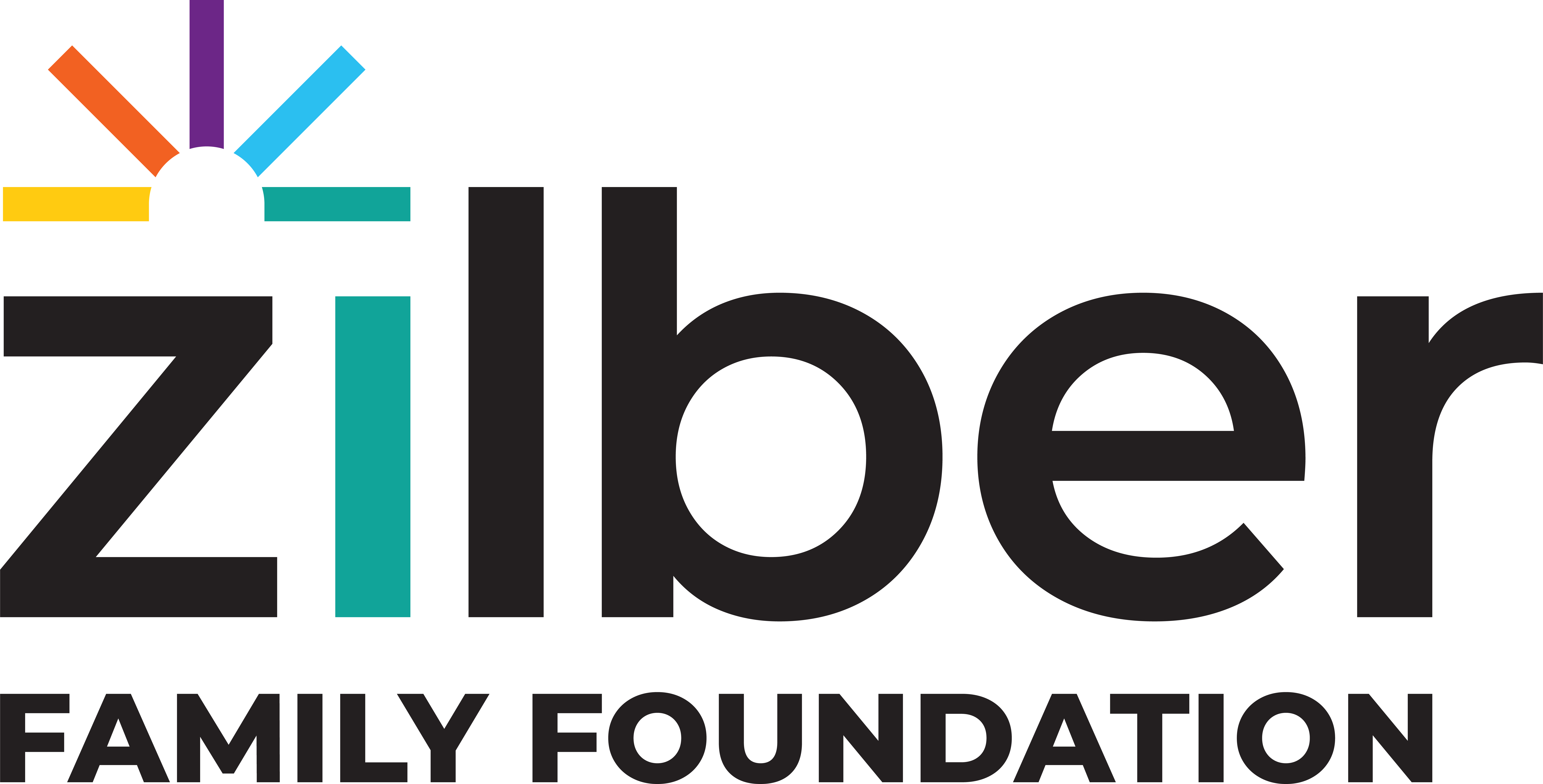
Data Dream Sponsor

Community Advocate Sponsors
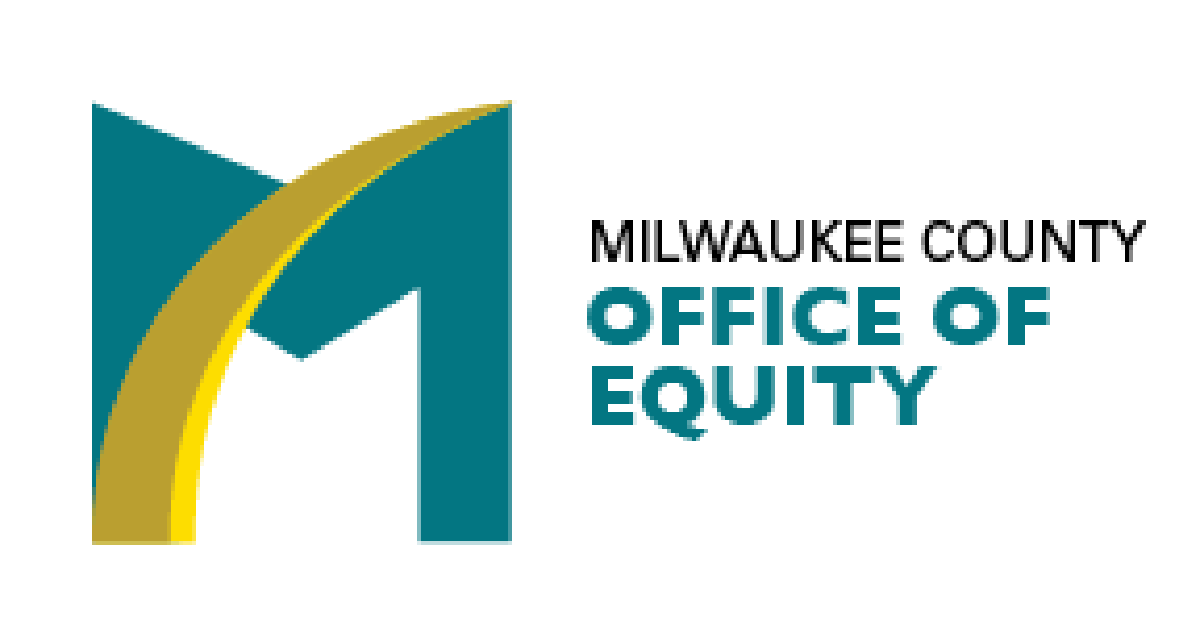
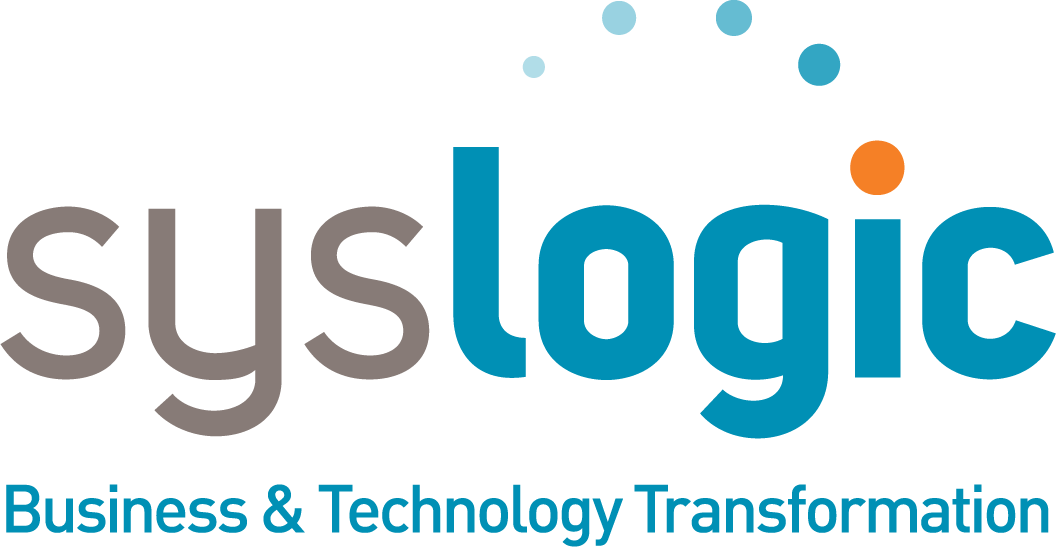

Community Partner Sponsors



What is Data Day?
Data Day is an annual event, hosted by Data You Can Use, which provides an opportunity for leaders from neighborhoods, nonprofits, universities, the public sector, and beyond to better understand what data are available, the implications of data on community revitalization, and how to increase connections between research and practice. Data Day 2023 will be Milwaukee’s 9th annual Data Day celebration, and our theme this year is Journey to Justice: Using Data for Systems Change in Milwaukee. We hope you can join us!
